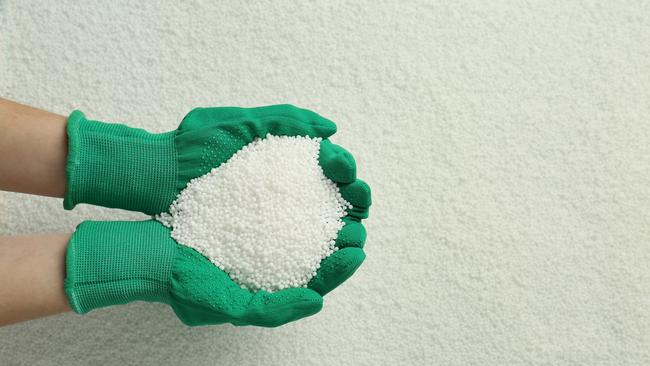Contaminated fertiliser stopped before spreading
Authorities have increased inspections of bulk fertiliser imported from China after contaminated batches were recently detected.
BORDER authorities have stopped two batches of fertiliser contaminated with corn from entering Australia, preventing farmers from inadvertently spreading exotic pests or diseases on their paddocks.
The contamination was self-reported by importers and subsequently confirmed in two separate consignments of bulk fertiliser, imported within one month of each other from China.
A Department of Agriculture, Fisheries and Forestry spokesperson said such contamination incidents are rare, with only one other recorded since the 2018/19 financial year.
“Small amounts of corn kernels have recently been found by biosecurity officers in two separate bulk fertiliser consignments from the People’s Republic of China,” the spokesperson said.
“Being of unknown origin and condition, and found in fertiliser that is applied directly onto farmland, contaminants such as this can potentially introduce exotic plant species or diseases into Australia in areas where the spread could be rapid and difficult to manage
“No contaminants from these two consignments made it past the border. It is very unlikely that any previous consignments of bulk fertiliser containing contaminants were released for use in Australia due to the strict biosecurity import processes in place at our first points of entry.”

The department has issued a notice for vessel owners, operators, shipping agents and importers of bulk mined, and natural and synthetic chemical fertilisers to be on high alert.
Authorities will increase inspections of consignments from China to determine the extent of supply chain risks and ongoing contamination.
The situation applies to both bagged and loose products but not containerised consignments.
“The increased intervention put in place by the department will assist to identify and address the likely cause of the contamination,” the spokesperson said.
“Industry and the peak fertiliser industry body have played a vital role in identifying and reporting the contamination in their imported consignments and continue to remain vigilant for biosecurity risk material contamination in imported consignments.”.
It is believed the contamination was detected in isolated amounts.
Fertilizer Australia chief executive Stephen Annells encouraged any stakeholder who suspected contamination issues to report the situation to authorities immediately.
“The industry has done the right thing in terms of reporting, and we are keeping a close eye on it,” he said.
“The main thing is ensuring the integrity of the system, and therefore Australia’s biosecurity, is maintained.
“The system is a very good one and we have not had an incursion for years. This helps to maintain a steady supply of fertiliser getting to growers as quickly as possible.”
The federal government last year approved Australia’s first National Biosecurity Strategythat is a blueprint for the nation’s biosecurity system over the next 10 years.




